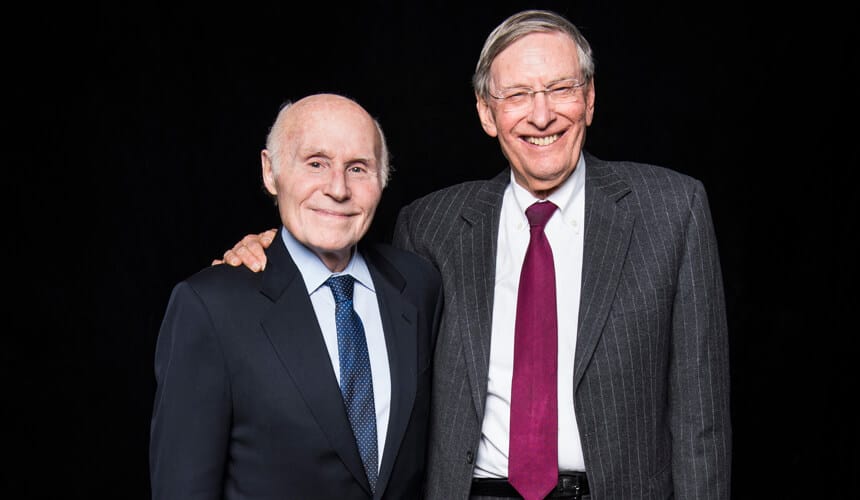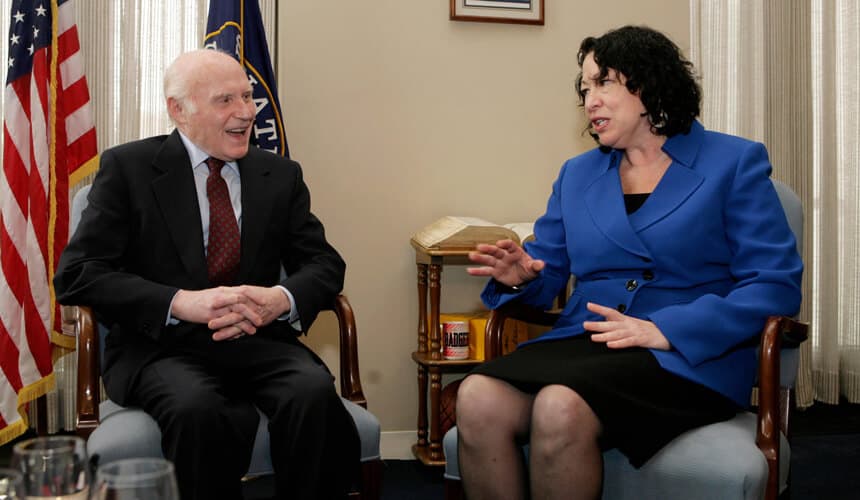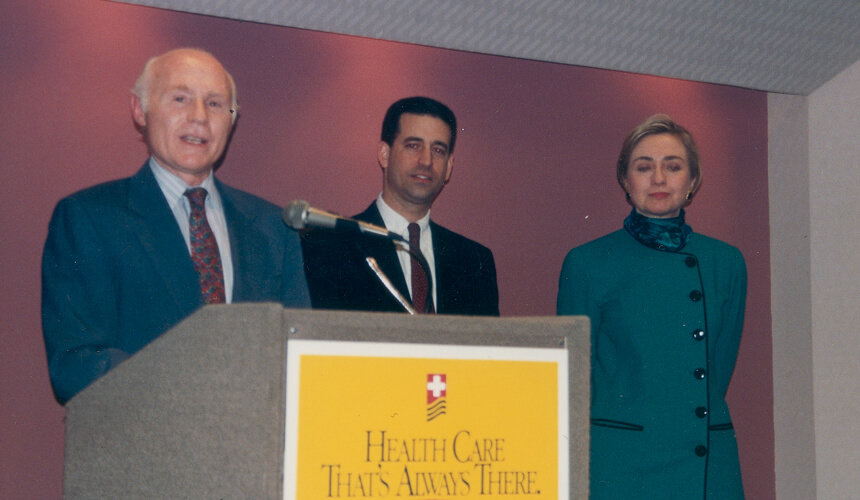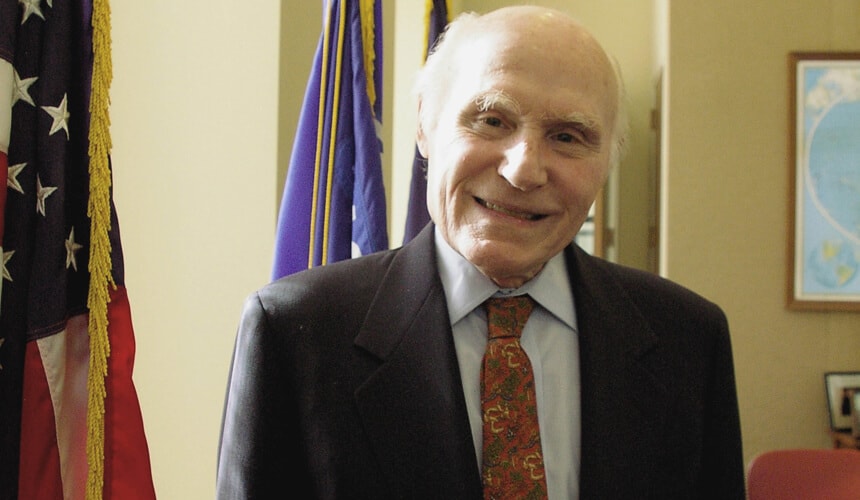Herb Kohl
A Humble Man with a Big Impact
The titles on Herb Kohl BS1956’s resume — ex-U.S. senator, successful businessman, former Milwaukee Bucks owner, and philanthropist — don’t seem to square with the quiet man who grew up in Milwaukee’s Sherman Park neighborhood. Where you might expect bluster, instead you get a self-effacing, driven dedication to community and philanthropy.
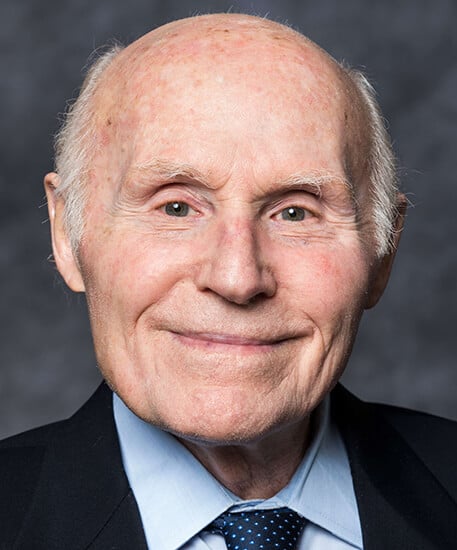
Kohl poses for a portrait after receiving a 2014 Distinguished Alumni Award.(Image courtesy of University Communications, #8323.)
“He’s a very humble man,” said former Senate Majority Leader Harry Reid, reflecting on Kohl’s 2013 retirement after 24 years in the Senate.
Kohl went to the UW with childhood chum, college roommate, and lifelong friend Allen “Bud” Selig BS1956, a Sherman Park neighbor who went on to become commissioner of Major League Baseball.
“If you’re lucky, during your four years here, your mind is opened up to unimaginable ideas, thoughts, and aspirations,” Kohl said of UW–Madison. “It was just the most idyllic, happy four years that you could imagine.”
After working in real estate and investments, Kohl became heir to the family-owned chain of grocery and department stores that his father, Max, built. He was its president from 1970 to 1979.
Intent on keeping the National Basketball Association in Milwaukee, Kohl bought the Bucks franchise in 1985 for $18 million. In 2014, he sold the team for $550 million, then gave $100 million to help fund an arena project anchoring the team in his hometown.
“He did it because he loves this city, he loves the people who are here, and he believes in its future,” said Milwaukee Mayor Tom Barrett BA1976, JD1980.
A Democrat, Kohl was elected to the Senate under the campaign slogan “Nobody’s Senator But Yours.” He was an advocate of public education, crime-fighting programs, and Wisconsin dairy farmers.
Kohl’s philanthropy is widely admired. His $25 million gift to UW–Madison in 1995 helped to fund construction of the Kohl Center. In 2016, he gave $1.5 million to the La Follette School of Public Affairs to create the Herb Kohl Public Service Research Competition, promoting public policy research.
Kohl surprised Wisconsin teachers in 2016 by funding every request — nearly 700 of them — to underwrite classroom projects in 140 districts. “We owe a lot to our teachers and hold enormous hope for our students,” Kohl said. “They are both a constant source of inspiration.”
 59° F
59° F